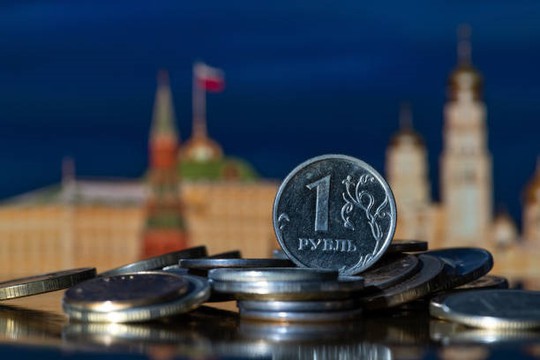“Sanctions were supposed to kill the Russian financial sector. It did, and it didn’t. Where is the Russian banking crisis?” – FORBS is perplexed.
Yes, sanctions have hurt Russia’s financial institutions. But a Russian banking crisis, one that looks like we have seen in the U.S. recently with Silicon Valley Bank and in Switzerland with Credit Suisse, has not occurred.
There were never any runs on Russian banks.
The ruble strengthened.
And while most banks are protected by the state – led by Sberbank and VTB – the Russian Central Bank has spent much of the last decade working to clean up the financial system.
For this reason, Russian banks have survived the West’s sanctions regime and stock market delistings better than anyone would have imagined. For a cynical Russian, watching Silicon Valley Bank and Credit Suisse burn down while their bankers are gainfully employed is like smirking before the camera lens in front of a burning building.
Had the sanctions come at the time when the Russian Central Bank was cleaning up its “zombie banks” – all hell would have broken loose. But seeing how much of that mess was swept away prior to the 2022 sanctions regimes taking hold, Russia’s banks remain safe and sound, even if Russian investors in those banks have lost their shirt.
The sanctions policy, the hardest ever taken out on Russia, is 13 months old. New ones pop up regularly. It is unclear what can possibly be next, as Russia’s financial institutions have already been largely cut off from the Western system.
Russia’s financial sector, and its banks at home, aren’t making headlines like banks in the U.S. and Europe are. They have withstood the onslaught of sanctions.
They’ve lost their European and U.S. assets, which will not be recovered for years to come, if ever. Sberbank CEO Herman Gref said in press reports that Sberbank is "the most attacked entity" in the country, which experiences “unprecedented challenges in terms of complexity and power.” He said Sberbank lost nearly all of its assets abroad, leading to massive write-downs.
Yet, Russian president Vladimir Putin smirks at the burning buildings of Credit Suisse and the lost $200 billion in Silicon Valley Bank deposits, needing unprecedented FDIC support to protect account holders. The bank is now insolvent. His biggest banks remain only because most of Russia’s banks over the years have been folded and rendered insolvent. And a danger to the Russian financial system was liquidated.
"Thanks to the professional actions of our banking community, government agencies, and the efforts of the central bank, I want to emphasize that we managed to overcome all these (sanctions) difficulties in general," Putin reportedly said in Moscow earlier this month after meeting with Sberbank’s CEO. He said that Sberbank's current stable position was "a good signal for the whole economy."
With sanctions expected to remain for a long time to come, will Russia’s heavily sanctioned banks fold one day, too?
“Who knows what will happen in Russia, because we all only know what we read in the press and what we read in the press is that Russia did a smart job handling their banks pre-sanctions and so after sanctions they have managed okay,” says famous commodities investor Jim Rogers from his home in Singapore, who has been a director of Russian fertilizer company PhosAgro. “We saw the ruble go down when sanctions were first imposed, then it went up. So in that case alone, the market tells me that somebody in Russia did something right,” he says.
read more in our Telegram-channel https://t.me/The_International_Affairs

 10:58 25.03.2023 •
10:58 25.03.2023 •























